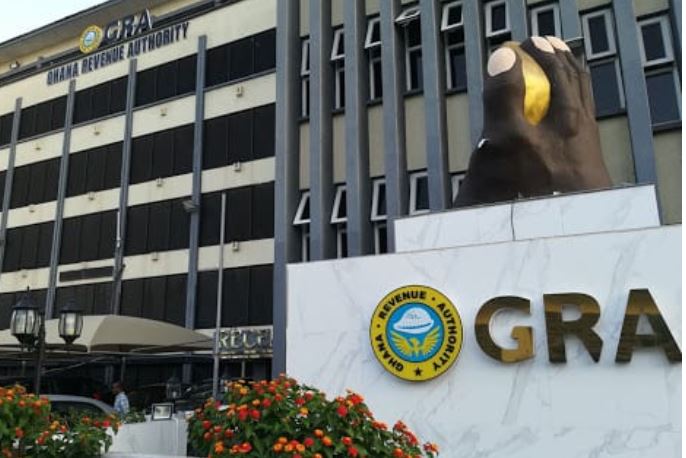A new digital system has enabled the Ghana Revenue Authority (GRA) to add more than GH¢1billion to the government’s revenue in just ten months of its implementation.
The platform is an end-to-end Electronic Metering Management System (EMMS) solution that gives real-time visibility and transparency to major stakeholders such as GRA and Customs.
The system monitors every litre of fuel that is imported into the country, and further monitors fuel that leaves the 16 currently operational storage sites – thereby virtually halting diversion of fuel and under-declaration of products.
Ever since the implementation of the system by Strategic Mobilisation Ghana Ltd. (SML) in June 2020, the volume of petroleum products it has recorded has increased by 752.4 million litres – which generated a tax component of more than GH¢1billion to the Ghana Revenue Authority (GRA) at the end of March 2021.
Managing Director of SML, Christian Tetteh Sottie, observed that there has been an issue of whether the country gets full returns from its petroleum products; hence, the concept was conceived to have an independent party monitor petroleum lifting and compare whatever data each party gives.
This must be pleasing to many since revenue shortage has been a consistent feature of the country’s economy. And the good aspect of this new digital system is, as Mr. Sottie stated, the company has the capacity to expand and improve the system to other sectors of the economy where revenue leakage has been a major challenge.
According to Sottie, given the robustness of the system, the government can exceed its revenue target for the year if it is replicated across other sectors. The government has targeted to raise some GH¢72.4billion in revenue for this year – after achieving the revised target for last year despite reduced economic activity stemming from the impact of the coronavirus pandemic on the economy.
With such a robust monitoring system in place, revenue targets can be met and even exceeded to the overall health of the economy. With such impressive results, we see no reason why the system cannot be replicated to other sectors of the economy to boost domestic revenue mobilisation.
If the country is able to meet most of its domestic revenue targets, achieving a ‘Ghana beyond Aid’ will not remain a pipe-dream.
Installation was started in 2020, and since they started monitoring the volumes growth has gone up compared to previous years.
Heavy IT investments paying off
Additionally, the country’s ports have made significant gains from automation, such as the Paperless Port Clearance Processes and implementation of the Integrated Customs Management System (ICUMS) – which has not only streamlined the activities of statutory agencies operating in the clearance chain but has also impacted the cost of doing business at the ports considerably.
According to the General Manager in charge of Marketing and Corporate Affairs at the Ghana Ports and Harbours Authority, Mrs. Esther Gyebi-Donkor, the process has increased automation at the ports and optimised the business process to the benefit of customers.
Processing time has also been reduced significantly. Also, falsification of documents has reduced through system integrations with other stakeholders, resulting in an increase in revenue.
The country’s ports saw a steady increase in its transit traffic of 1.5 million metric tonnes last year, compared to 1.3 million metric tonnes in 2019; while seeing a significant increase in its transhipment traffic of 602,778 metric tons in 2020 compared to 90,158 metric tonnes in 2019 despite COVID-19.
This is indicative of the strides Ghana’s ports have made toward becoming the preferred trade and logistics hub in the sub-region.
Mrs. Gyebi-Donkor disclosed that the paperless port project in particular – coupled with the general performance of Port Tema – has led to GPHA consistently chalking up many peer-review awards over recent years.
Indeed, the US$1.5billion Tema Port expansion and US$500m Takoradi Port expansion represent two milestone moments in the development of Ghana as an African trade & investment hub. The current infrastructure projects coupled with the launch of the Africa Continental Free Trade Agreement (AfCFTA) have accelerated Ghana’s journey toward building a truly globally competitive maritime hub.
Soon, Ghana will be able to accommodate the world’s largest container ships, and an efficient shipping and logistics sector is key to the ‘Ghana Beyond Aid’ goals set out by the government.
Ghana also acts as a trade gateway to landlocked neighbours such as Burkina Faso, Mali and Niger – a position that will be strengthened by upcoming infrastructure projects.
As the fourth industrial revolution continues to drive automation in supply chain networks, Ghana is well-positioned to remain up to speed with international best practices. This passion is driven by no less a personality than the Vice president, Alhaji Mahamudu Bawumia who has seen to it that the country continuously invests in its IT infrastructure.
Already, the benefits of such investments are driving growth in the economy.










